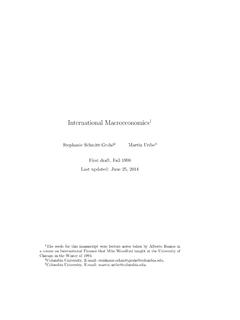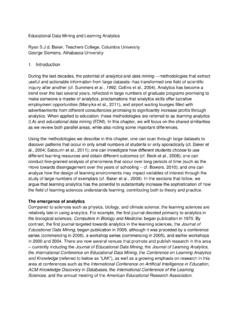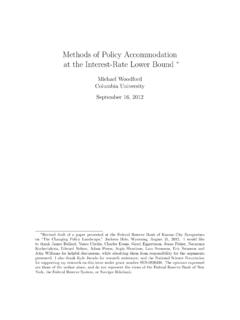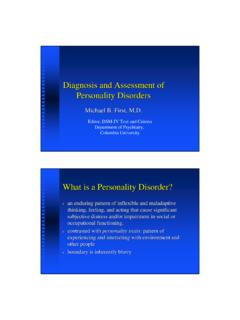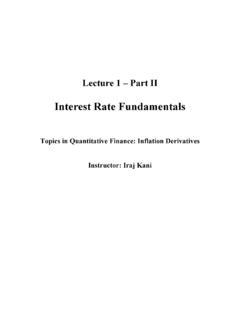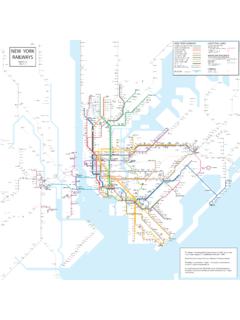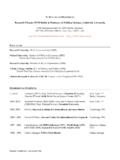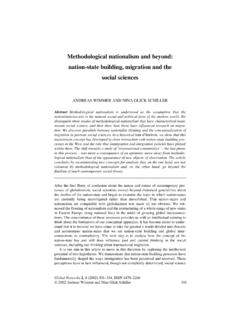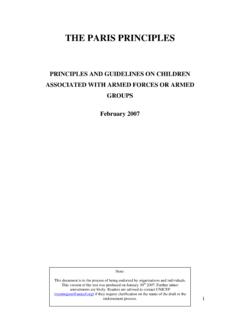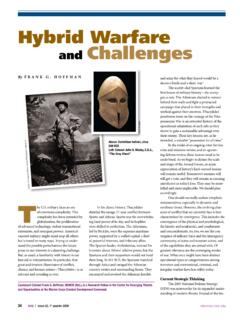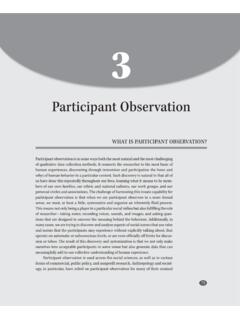Transcription of Structural Realism after the Cold War - Columbia University
1 St r uctur al Reali sm aft ert he Cold W arKenneth N. WaltzSome students of in-ternational politics believe that Realism is They argue that, althoughrealism s concepts of anarchy, self-help, and power balancing may have beenappropriate to a bygone era, they have been displaced by changed conditionsand eclipsed by better ideas. New times call for new thinking. Changingconditions require revised theories or entirely different rue, if the conditions that a theory contemplated have changed, the theoryno longer applies. But what sorts of changes would alter the internationalpolitical system so profoundly that old ways of thinking would no longer berelevant? Changes of the system would do it; changes in the system would changes take place all the time, some important, some not.
2 Bigchanges in the means of transportation, communication, and war ghting, forexample, strongly affect how states and other agents interact. Such changesoccur at the unit level. In modern history, or perhaps in all of history, theintroduction of nuclear weaponry was the greatest of such changes. Y et in thenuclear era, international politics remains a self-help arena. Nuclear weaponsdecisively change how some states provide for their own and possibly forothers security; but nuclear weapons have not altered the anarchic structureof the international political in the structure of the system are distinct from changes at the unitlevel. Thus, changes in polarity also affect how states provide for their cant changes take place when the number of great powers reduces totwo or one.
3 With more than two, states rely for their security both on theirKenneth N. Waltz, former Ford Professor of Political Science at the University of California, Berkeley, is aResearch Associate of the Institute of War and Peace Studies and Adjunct Professor at Columbia am indebted to Karen Adams and Robert Rauchhaus for help on this article from its conceptionto its completion. For insightful and constructive criticisms I wish to thank Robert Art, RichardBetts, Barbara Farnham, Anne Fox, Robert Jervis, W arner Schilling, and Mark For example, Richard Ned Lebow, The Long Peace, the End of the Cold W ar, and the Failureof Realism , International Organization, V ol. 48, No. 2 (Spring 1994), pp.
4 249 277; Jeffrey W . Legroand Andrew Moravcsik, Is Anybody Still a Realist? International Security, V ol. 24, No. 2 (Fall1999), pp. 5 55; Bruce Russett, Grasping the Democratic Peace: Principles for a Post Cold War Peace(Princeton, : Princeton University Press, 1993); Paul Schroeder, Historical Reality vs. Neo-realist Theory, International Security, V ol. 19, No. 1 (Summer 1994), pp. 108 148; and John asquez, The Realist Paradigm and Degenerative vs. Progressive Research Programs: An Ap-praisal of Neotraditional Research on W altz s Balancing Proposition, American Political ScienceReview, V ol. 91, No. 4 (December 1997), pp. 899 Security, V ol. 25, No. 1 (Summer 2000), pp. 5 41 2000 by the President and Fellows of Harvard College and the Massachusetts Institute of internal efforts and on alliances they may make with others.
5 Competitionin multipolar systems is more complicated than competition in bipolar onesbecause uncertainties about the comparative capabilities of states multiply asnumbers grow, and because estimates of the cohesiveness and strength ofcoalitions are hard to changes of weaponry and changes of polarity were big ones withrami cations that spread through the system, yet they did not transformit. If the system were transformed, international politics would no longer beinternational politics, and the past would no longer serve as a guide to thefuture. W e would begin to call international politics by another name, assome do. The terms world politics or global politics, for example, suggestthat politics among self-interested states concerned with their securityhas been replaced by some other kind of politics or perhaps by no politics changes, one may wonder, would turn international politics into some-thing distinctly different?
6 The answer commonly given is that internationalpolitics is being transformed and Realism is being rendered obsolete as democ-racy extends its sway, as interdependence tightens its grip, and as institutionssmooth the way to peace. I consider these points in successive sections. Afourth section explains why realist theory retains its explanatory power afterthe Cold W ar .Democracy and PeaceThe end of the Cold W ar coincided with what many took to be a new demo-cratic wave. The trend toward democracy combined with Michael Doyle srediscovery of the peaceful behavior of liberal democratic states inter se con-tributes strongly to the belief that war is obsolescent, if not obsolete, amongthe advanced industrial states of the democratic peace thesis holds that democracies do not ght democra-cies.
7 Notice that I say thesis, not theory. The belief that democraciesconstitute a zone of peace rests on a perceived high correlation betweengovernmental form and international outcome. Francis Fukuyama thinks thatthe correlation is perfect: Never once has a democracy fought another democ-racy . Jack Levy says that it is the closest thing we have to an empirical law2. Michael W . Doyle, Kant, Liberal Legacies, and Foreign Affairs, Parts 1 and 2, Philosophy andPublic Affairs, V ol. 12, Nos. 3 and 4 (Summer and Fall 1983); and Doyle, Kant: Liberalism andW orld Politics, American Political Science Review, V ol. 80, No. 4 (December 1986), pp. 1151 Security 25:1 6in the study of international relations.
8 3 But, if it is true that democracies restreliably at peace among themselves, we have not a theory but a purported factbegging for an explanation, as facts do. The explanation given generally runsthis way: Democracies of the right kind ( , liberal ones) are peaceful inrelation to one another. This was Immanuel Kant s point. The term he usedwas Rechtsstaat or republic, and his de nition of a republic was so restrictivethat it was hard to believe that even one of them could come into existence,let alone two or And if they did, who can say that they would continueto be of the right sort or continue to be democracies at all? The short and sadlife of the W eimar Republic is a reminder.
9 And how does one de ne what theright sort of democracy is? Some American scholars thought that WilhelmineGermany was the very model of a modern democratic state with a widesuffrage, honest elections, a legislature that controlled the purse, competitiveparties, a free press, and a highly competent But in the French,British, and American view after August of 1914, Germany turned out not tobe a democracy of the right kind. John Owen tried to nesse the problem ofde nition by arguing that democracies that perceive one another to be liberaldemocracies will not That rather gives the game away. Liberal democ-racies have at times prepared for wars against other liberal democracies andhave sometimes come close to ghting them.
10 Christopher Layne shows thatsome wars between democracies were averted not because of the reluctance ofdemocracies to ght each other but for fear of a third party a good realistreason. How, for example, could Britain and France ght each other overFashoda in 1898 when Germany lurked in the background? In emphasizingthe international political reasons for democracies not ghting each other,Layne gets to the heart of the Conformity of countries to a prescribed3. Francis Fukuyama, Liberal Democracy as a Global Phenomenon, Political Science and Politics,Vol. 24, No. 4 (1991), p. 662. Jack S. Levy, Domestic Politics and W ar , in Robert I. Rotberg andTheodore K. Rabb, eds.
